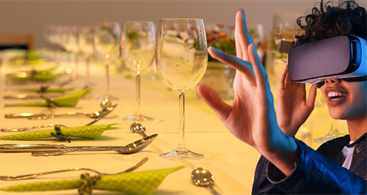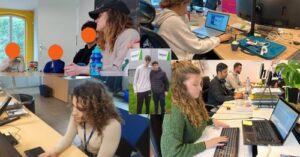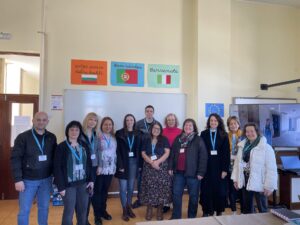 VET VR ACADEMY seeks to address the particular challenges posed by COVID19 to hospitality education with digital innovations: a transnational online learning platform and interactive VR environments.
VET VR ACADEMY seeks to address the particular challenges posed by COVID19 to hospitality education with digital innovations: a transnational online learning platform and interactive VR environments.

The Covid 19 pandemic has undoubtedly had a devastating impact on the hospitality industry across Europe. Vocational training in the sector, for which work experience in internships and training companies is essential, has also been severely affected. This is confirmed byresults of a stocktaking carried out in the framework of the Erasmus+ project VET VR ACADEMY in the five partner countries France, Spain, Cyprus, Denmark and Germany: Training institutions have been keen to adapt quickly to these changes. The digitalisation of classrooms has made it possible to continue training as much as possible. However, the unwillingness of some VET providers to invest in technological equipment and tools, the difficult financial situation during the pandemic and the lack of digital skills among teachers and trainers led to many delays and problems in implementing existing programmes and designing new ones. These impairments also affected the content, examinations and training successes as well as the attractiveness of the occupational profiles and training as a whole. In addition, practical work experience in particular, which is essential in this field, was lacking during training.
Digital tools as an answer to the specific challenges
Building on these survey results , the partnership is now preparing to develop an online learning platform and virtual reality environments for targeted training in the hospitality sector. The online platform will include at least three modules: interpersonal skills, technical skills and specific skills related to the professional environment.
The VR environments, will enable VET learners in the hospitality sector to gain insight into and train professional practices in the hospitality sector in the partner countries, will cover five thematic areas and be available in French, Spanish, English, German and Greek:
– Setting a table
– Cocktail preparation
– Serve und clear meals
– Flambé at the table
– Hygiene and cleaning
These tools can be used not only to enhance and complement on-site vocational training, but also to support language learning and prepare for mobility abroad.





